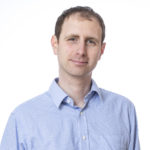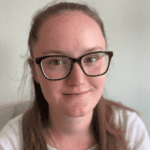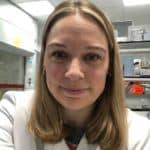Profile
David Nunan
-
Read more
Ever since I attended a one-day workshop on evidence-based medicine I’ve been fascinated to learn more about how it has shaped medical practice and our health.
From putting babies to sleep on their backs to drugs that stop irregular heart beats, there are loads of really important examples where evidenced-based medicine has helped save or improve the lives of thousands of people and where by not practicing evidenced-based medicine we have killed almost as many.
A doctor who practices evidence-based medicine is someone who uses their skills to identify the best available scientific evidence along with their clinical experience to answer questions that matter to their patients and help them make the best decisions for their healthcare (here’s a nice video about what EBM is: https://www.youtube.com/watch?v=Z_yiUf3f92s)
There are lots of people conducting and reporting good science in health and medicine. But there are also people doing and reporting bad science. I try to applaud and promote the first group of people and highlight and help guard us against the second.
Nowadays in the modern world of instant online information, it is even more important for us all to understand the science behind the headlines of health stories and judge for ourselves whether it is based on good or bad evidence.
I work to ensure that doctors and other people working in medicine and health are aware of the good and bad evidence and I teach them how to be able to do this for themselves. (Here’s another video that shows a bit of what I teach about: https://www.youtube.com/watch?v=GUpd2HJHUt8)
As well as all this, I also perform my own (hopefully good) research to help answer important questions related to medicine and our healthcare, particularly around the role of physical activity and exercise in helping prevent and treat major diseases such as heart disease and cancer (you can see some of my research here)
-
My Typical Day:
Dog walking, writing, blogging, researching, reading, teaching, tweeting about evidence-based medicine, and then some Capoeira
-
Read more
After breakfast with my daughters and walking my dog (Bimba), I start work on the train as most of my work is done on my phone, laptop or PC. I’m quite active on twitter. It’s great for seeing what other geeks like me are talking about and the latest dodgy science being tweeted.
I work in the newly built Department of Primary Care Health Sciences which is housed above a new GP surgery in central Oxford. Here is a picture of my office building:

And here’s the general practice surgery on the ground floor:

I work as both a lecturer and researcher, splitting my time between teaching and research. My research is split between experiments (called ‘studies’ or ‘trials’) on people and patients in the community and searchers of evidence to help answer important medical and health questions. My ‘lab’ is therefore the doctor’s surgery below my office or the body of scientific evidence and health stories available online.
As I work in an academic department my day often includes attending meetings and seminars. We have over 200 researchers and post-graduate students in our department so their is often someone talking about their work but we also have scientists from other departments and universities coming to share their work and ideas. I also get involved; here’s me giving a recent talk on some of my work:
A lot of my day is spent at my desk (or another desk at one of the many nice buildings in Oxford). I’ll often be doing different things each day and most times I’m multitasking on different things (thats why I have 3 computer screens at my desk!). This will often include preparing for teaching, talking to students about their work, analysing data, writing papers or presentations for scientific journals and meetings or writing for my blog.
The best thing I love about my job is that I’m surrounded by amazing scientists and researchers where I can just tap on their door for a chat on important issues related to health, medicine and evidence. I think this is where I have learnt most. I also have a colleague whom I collaborate with on most of my research and ideas. I think this is really important because two heads are definitely better than one – many of the best discoveries and ideas in science are made and created by scientists working together.
To recover from all this in the evenings I train and teach Capoeira, a Brazilian art form/martial art.
-
What I'd do with the prize money:
I’d use it to buy audio equipment to record podcasts with students giving tips about how they’ve learnt to work out if studies they read about health are based on good or bad science (using crazy examples like “Inject pregnant urine to lose weight”)!
-
Education:
Brunel University (2006-2009); Brunel University (2002-2003); Kingston University (1997-2000); Eastbourne College of Arts and Technology (1995-1997); Ratton School, Eastbourne (1990-1995)
-
Qualifications:
PhD Cardiovascular Physiology; MSc Sports Science; BSc Hons Sports Science
-
Work History:
University of Oxford (Research Officer); King’s College Hospital, London (Advanced Practitioner Cardiac Physiologist); Kingston University (Director, Human Performance Laboratory); M&S (I worked on the checkout); ECAT (Gym instructor), Brookland’s Nursing Home (I cleaned residents rooms)
-
Current Job:
Departmental Lecturer and Senior Researcher
-
My Interview
-
How would you describe yourself in 3 words?
Energetic, hard-working, risk-taker
Were you ever in trouble at school?
Yes
Who is your favourite singer or band?
Tom Jobim
What's your favourite food?
Homemade pizza from my DIY outdoor clay oven
If you had 3 wishes for yourself what would they be? - be honest!
Health and happiness for my children, a tele-porter between work and home, a workout with Bruce Lee
Tell us a joke.
I’m good looking, really clever and funny
-






